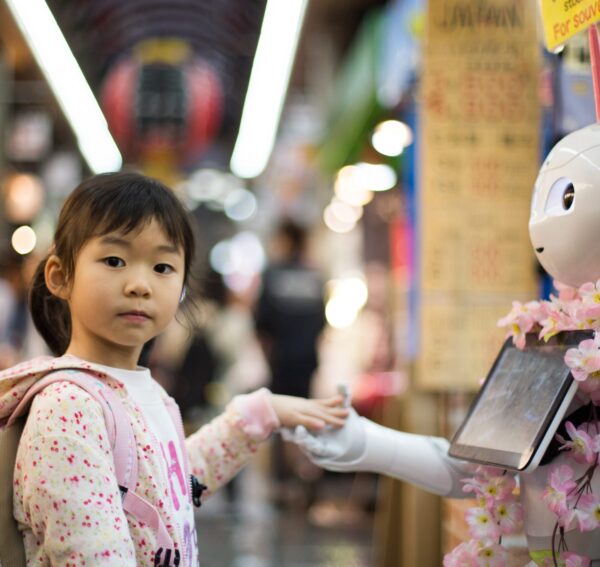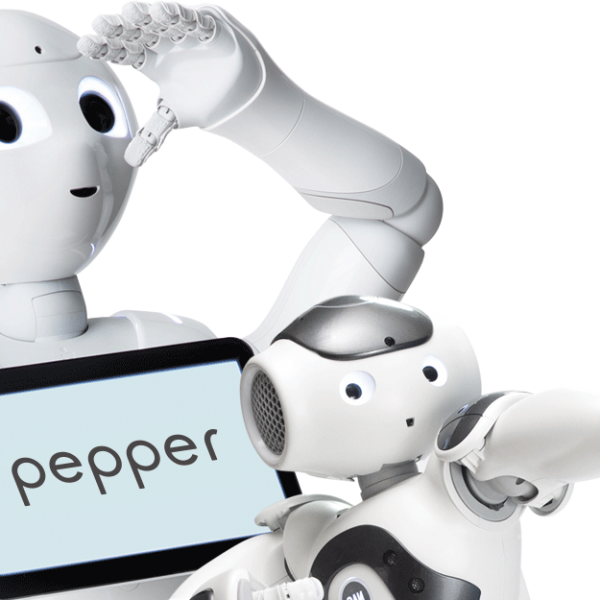Infants outperform AI when it comes to detecting the motivations of others, study finds

Infants outperform artificial intelligence (AI) when it comes to detecting what motivates other people’s actions,a new study from New York University has found.
“Adults and even infants can easily make reliable inferences about what drives other people’s actions,” explained senior author assistant Professor Moira Dillon.
The study, which appears in the journal Cognition, sought to develop a foundational understanding of the differences between human and AI abilities through a series of experiments with 11-month-old infants, comparing their responses to those yielded by state-of-the-art learning-driven neural-network models.
“Current AI finds these inferences challenging to make,” researchers explain. “The novel idea of putting infants and AI head-to-head on the same tasks is allowing researchers to better describe infants’ intuitive knowledge about other people and suggest ways of integrating that knowledge into AI.”
“If AI aims to build flexible, commonsense thinkers like human adults become, then machines should draw upon the same core abilities infants possess in detecting goals and preferences,” added fellow author assistant Professor Brenden Lake.
It’s been well-established that infants are fascinated by other people – as evidenced by how long they look at others to observe their actions and to engage with them socially. In addition, previous studies focused on infants’ “commonsense psychology” – their understanding of the intentions, goals, preferences, and rationality underlying others’ actions – have indicated that infants are able to attribute goals to others and expect others to pursue goals rationally and efficiently. The ability to make these predictions is foundational to human social intelligence.
Conversely, “commonsense AI” – driven by machine-learning algorithms – predicts actions directly. However, what AI lacks is flexibility in recognizing different contexts and situations that guide human behaviour.
To reach their findings the researchers deployed the previously established “Baby Intuitions Benchmark” (BIB) – six tasks probing commonsense psychology. BIB was designed to allow for testing both infant and machine intelligence, allowing for a comparison of performance between infants and machines and, significantly, providing an empirical foundation for building human-like AI.
Specifically, infants on Zoom watched a series of videos of simple animated shapes moving around the screen – similar to a video game. The shapes’ actions simulated human behaviour and decision-making through the retrieval of objects on the screen and other movements. Similarly, the researchers built and trained learning-driven neural-network models – AI tools that help computers recognise patterns and simulate human intelligence – and tested the models’ responses to the exact same videos.
Their results showed that infants recognise human-like motivations even in the simplified actions of animated shapes. Infants predict that these actions are driven by hidden but consistent goals – for example, the on-screen retrieval of the same object no matter what location it’s in and the movement of that shape efficiently even when the surrounding environment changes. Infants demonstrate such predictions through their longer looking to such events that violate their predictions – a common and decades-old measurement for gauging the nature of infants’ knowledge.
Adopting this “surprise paradigm” to study machine intelligence allows for direct comparisons between an algorithm’s quantitative measure of surprise and a well-established human psychological measure of surprise – infants’ looking time. The models showed no such evidence of understanding the motivations underlying such actions, revealing that they are missing key foundational principles of commonsense psychology that infants possess.
To access the findings in full, please see here.
Popular

Quality
Practice
Provider
Research
Workforce
Honouring the quiet magic of early childhood
2025-07-11 09:15:00
by Fiona Alston

Policy
Practice
Provider
Quality
Workforce
Minister Jess Walsh signals urgent action on safety and oversight in early learning
2025-07-11 08:45:01
by Fiona Alston

Workforce
Policy
Quality
Practice
Provider
Research
The silent oath: Why child protection is personal for every educator
2025-07-17 09:00:31
by Fiona Alston











